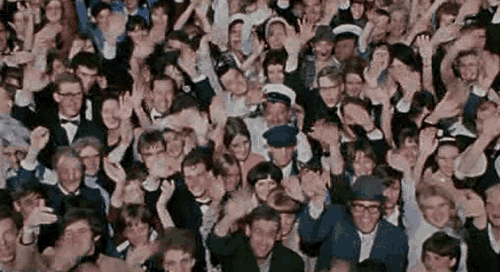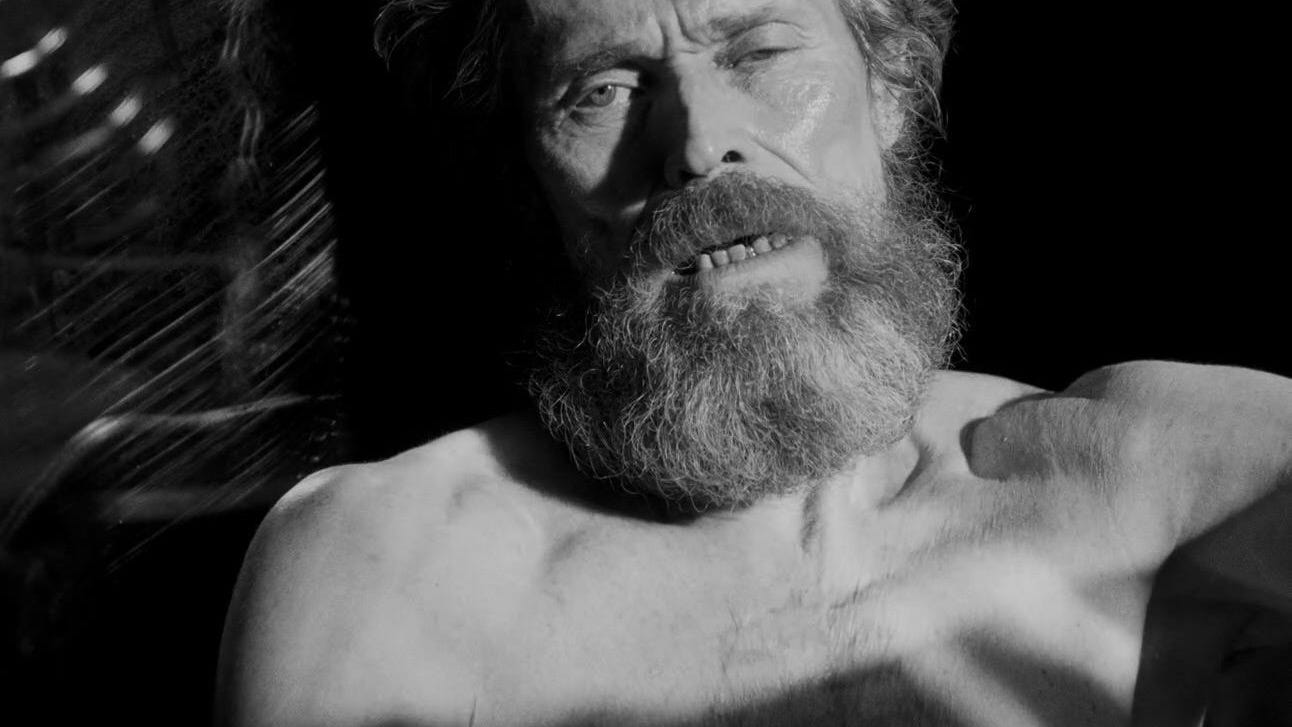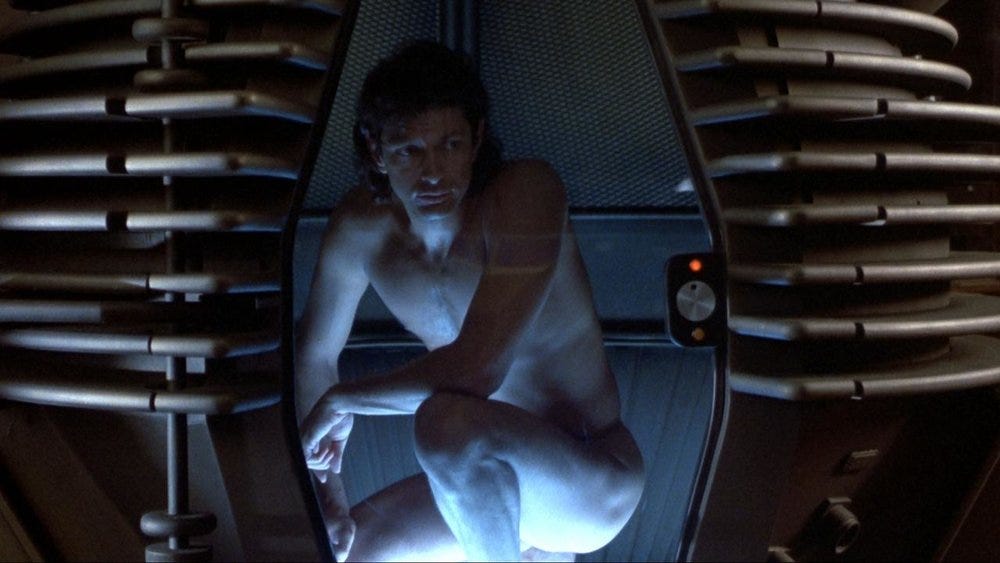And so, we add another entry of Picks to our body of work here at Ponytail Press. We’ve got a gut feeling our puns are getting to be a pain in the ass, but we’d give an arm and a leg for you to keep reading.
WATCH
Bodies on the big screen
The Lighthouse (2019)
Surrounded by a brutal body of water with no visible end are two other frail bodies beaten nearly senseless by the elements and left dripping with sweat, sea water, and, uh, other bodily fluids.
Private Life (2018)
How do you deal with your body when it’s not doing what you want it to do? When it’s yours but seemingly out of your control?
The Fly (1986)
From a glistening Goldblum with a six-pack to a gross fly-man falling apart, the transformation of a body lies at the heart and guts of this gooey horror.
Sound of Metal (2019)
When a part of your body undergoes a major change, how do you respond, especially when it seemingly undermines your entire life’s plans and purpose?
It’s very important, if you want to be here, to understand we’re looking for a solution to this [points at forehead], not this [points at ears].
Swiss Army Man (2016)
Masturbation, farts, and a corpse with superhuman abilities… the power of the body is on full and fully weird display here.
-JB
LISTEN
6 songs that connect Andrew to his body
I don’t know about you, but my body has a multi-channel relationship to music. Whether I’m singing, dancing, or simply taking it in with my ears, it can transport me to the here-and-now in a way few other things can. All these songs have their own, physical effect on me. I’m curious if you’ll feel the same way, so let me know in the comments below.
The Strokes - “What Ever Happened?”
I love to sing. Fronting a rock band is a fantasy I still can’t quite let go of, and this song keeps it alive. Julian Casablancas goes full-tilt from beginning to end. Next time you’re alone in the car, belt this one out. My body vibrates every time I do it.
LCD Soundsystem - “Dance Yrself Clean”
I will never forget the first time I heard this song. If you’re new to it, my guess is you won’t either. The title might give away the musical activity it represents in this list, but I chose it because it actually holds a special space between two: dancing and rocking out. It’s a space LCD Soundsystem is more than familiar with, but this track does a better job of filling it than any other I’ve heard. Just try to resist—I dare you.
MARO - “we’ve been loving in silence”
From its intimate lyrics to its sensuous groove, MARO’s “we’ve been loving in silence” will get you in the mood. There’s a feeling of being home that only a lover’s skin can give you. This song will remind you of those moments.
Daft Punk - “One More Time”
No matter how many times you hear this song, it always does its job: raising the energy level in the room. No need to rock out here. Just follow the orders: “don’t stop the dancing.”
James Blake - “Limit To Your Love”
I remember seeing Blake at the Commodore Ballroom about 10 years ago. During this song, you could feel the bass tones rise and fall in the room. It felt as much like a science experiment as it did an ecstatic musical moment. You can test the quality of your stereo based on whether you can hear the lowest notes he plays at the end of the song, and the experience of hearing them is well worth it.
George Harrison - “Be Here Now”
In a completely different way, George Harrison encourages me to notice myself in the moment with this song from his 1973 album, Living in the Material World. His trodding pace brings the message home in a way that calmly resists any argument.
Here are the lyrics. Listen, read along, and remember: tomorrow will worry about itself.
Remember now, be here now As it's not like it was before The past was, be here now And it's not what it was before it was Why try to live a life That isn't real, no how A mind that wants to wander 'Round a corner is an un-wise mind Now is, be here now And it's not what it was before Remember now, be here now 'Cause it's not like it was before it was
Looking for more polite, body-centring content suggestions?
Check out these past Ponytail Picks.
READ
This Here Flesh: Spirituality, Liberation, and the Stories that Make Us
Two disclaimers: First, I haven’t finished reading this yet, but the first five chapters are stunning and I have no doubt in my mind that the rest are no less so. Second, this a book about spirituality, as evidenced in the sub-title, and it uses a lot of language from Christian traditions, and so those of you who are not interested in such things or perhaps have scars from the ways Christian language may have hurt you in the past may not be interested in this book. But for what it’s worth, I think the way Cole Arthur Riley reclaims and re-embodies a lot of this language and tradition in This Here Flesh makes it a work worth reading no matter your religious affiliation or worldview.
I first discovered Riley through her Black Liturgies project on Instagram in 2020, after the murder of George Floyd sparked an anti-racist movement that forced non-BIPOC folk like myself to face the reality of systemic racism in our culture, and also brought to the cultural forefront the work of longstanding Black creators, thinkers, and activists.
I was captivated by the way she married her deep convictions about God with affirmations of the body and the earth, as well as with unabashed condemnations of the white supremacy present in society’s structures—the Christian church included. Her prayers contained no divide between the sacred and the secular, or the spiritual and the bodily—she called her God to the front lines of anti-racist protests, and she invited her readers to breathe in and out of their lungs the divine within.
This Here Flesh is in the same vein. Riley makes it clear in her preface that the “contemplative spirituality” she inherited in her “Black blood” is “not a spirituality of disembodied, solitary intellectual musing.” It’s “a fidelity to beholding the divine in all things. In the field, on the walk home, sitting under the oak tree that hugs my house.” And, she continues, “we get there by descending into the stories that reside in our bodies” (x). She ends her preface with an invitation:
The pages you hold are where the stories that have formed me across generations meet our common practice of beholding the divine. Feel now, they are wet with tears. Look how they glisten like my skin in sun, and they bear the grooves of many scars (xi).
Her first chapter begins the way I believe all books on identity should—with an affirmation of the dignity inherent in your body:
Bare your teeth as you smile, grease that scalp, relax those shoulders—hold your arms like their weight is in glory. You have been made (15).
Chapter five, meanwhile, revisits her initial thesis about the stories living in our bodies when she reflects upon her connection to her Black ancestors:
Trauma changes the body… Though I would never wish away my connection to those who endured and resisted violence and exclusion, I have to contend with what their stories are doing to my body… What great violence has this flesh endured? What chills sail up my spine, and when? (62, 64).
She concludes, definitively, “We cannot get free disembodied” (64).
Her emphasis upon the utter entanglement of body and soul is summarized later on (“To know your own body is a spiritual care and protection. To know the body of another is a spiritual union and conciliation” [66]) and she further cements this idea within the Christian tradition when she points out the bodily language clear as day in one of the most famous Christian rituals—the “eating” and “drinking” of the body and blood of Christ in the Eucharist:
It means something that… this lasting ritual of the presence and memory of God… is a physical nourishment as much as it is spiritual… I love that we don’t just bow to the bread, we eat it—the body of God entering our bodies (68).
And so, another invitation:
You want to tell me to love God? Ask me when I’ve last eaten. Come now, you want me to tell you a prayer? You’ll find it in the blood beating from heart to head to toe and home again.
Don’t ask me of salvation. Listen to the hum of my chest as I now fall asleep (68).
Wishing you sweet prayers and divine dreams, dear readers.
-JB
We hope this week’s picks got your body moving and your brain thinking. We’d love to know if you have any themes you’d like us to explore.
In the meantime, we’ll sully our hands next time with the topic of











Great picks, thoughtful comments! Thanks!